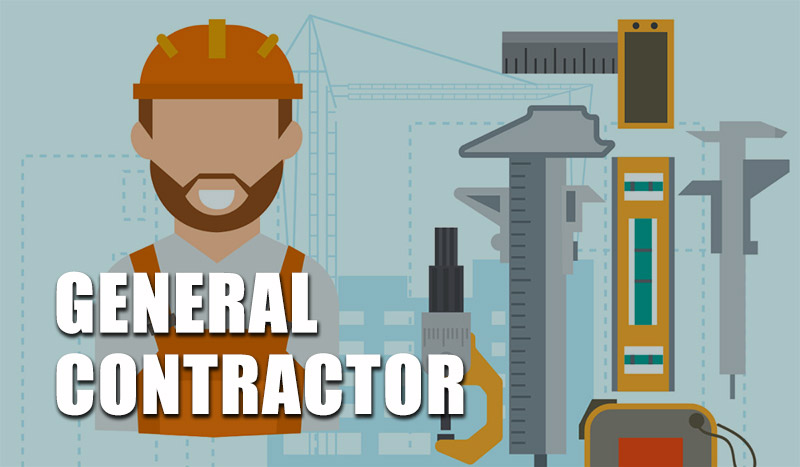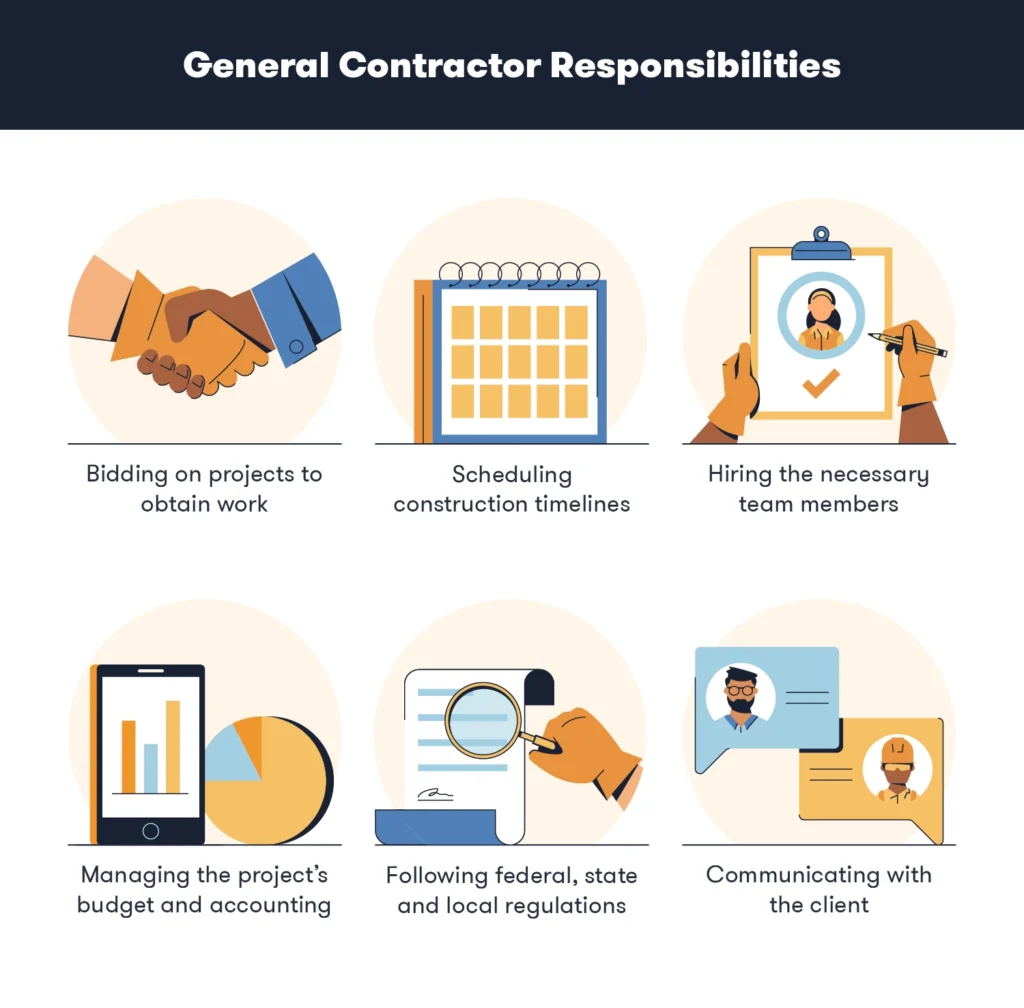
The Role and Importance of General Contractors in Construction
Introduction
General contractors play a pivotal role in the construction industry, acting as the primary orchestrators of complex building projects. They are responsible for coordinating all aspects of a construction project, from initial planning and design to the final touches of construction and everything in between. In this article, we will explore the role and importance of general contractors in the construction industry, their responsibilities, qualifications, and the challenges they face in today’s dynamic building environment.
- What is a General Contractor?
A general contractor, often referred to as a GC, is a professional responsible for managing and overseeing every aspect of a construction project. These projects can vary in size and complexity, ranging from small residential renovations to large-scale commercial developments. General contractors serve as the central point of contact for the client and are tasked with ensuring that the project is completed on time, within budget, and to the client’s satisfaction.
- The Responsibilities of General Contractors
The responsibilities of a general contractor can be divided into several key categories:
a. Pre-Construction Phase:
- Project Planning: The GC works with the client and, if necessary, architects and engineers to develop a project plan that outlines the project scope, budget, and timeline.
- Permits and Approvals: General contractors navigate the complex web of building permits and regulatory approvals required for construction projects.
- Subcontractor Selection: They select and hire subcontractors for specialized tasks, such as plumbing, electrical work, and HVAC.
b. Project Management:
- Scheduling: General contractors create a detailed project schedule and ensure that all activities happen in a logical order.
- Budget Management: They manage the budget, control costs, and make adjustments as needed to avoid cost overruns.
- Quality Control: Ensuring that the work meets quality standards is a vital responsibility.
- Safety: Safety on the construction site is paramount, and the GC is responsible for enforcing safety protocols.
c. Communication:
- Client Communication: General contractors serve as the main point of contact for the client, providing regular updates and addressing concerns.
- Subcontractor Coordination: They coordinate the efforts of various subcontractors, ensuring that work progresses smoothly.
- Problem Solving: GCs are tasked with resolving issues that may arise during construction, whether they concern design changes, material delays, or unforeseen challenges.
d. Post-Construction Phase:
- Final Inspections: General contractors oversee final inspections and ensure that all required permits and certifications are obtained.
- Client Handover: They deliver the completed project to the client, often including training on systems and maintenance.
- Qualifications and Skills of General Contractors

Becoming a general contractor requires a combination of education, experience, and skills. While qualifications can vary by location, here are some common prerequisites:
a. Education: Many general contractors have a bachelor’s degree in construction management or a related field. However, some gain entry into the profession through trade apprenticeships or by working their way up from laborer positions.
b. Licensure: Most states require general contractors to obtain a license, which typically involves passing an exam and meeting specific experience requirements.
c. Experience: Prior experience in construction is essential. General contractors often spend years working in the field, gaining hands-on experience in various trades.
d. Skills: General contractors need excellent organizational and communication skills, problem-solving abilities, and a deep understanding of construction techniques, materials, and regulations.
- The Importance of General Contractors
General contractors are crucial to the success of construction projects for several reasons:
a. Project Coordination: They serve as the project’s central hub, ensuring that all moving parts work together smoothly.
b. Risk Management: GCs manage and mitigate risks, helping to avoid delays, disputes, and cost overruns.
c. Quality Control: They uphold the highest quality standards and ensure that work meets building codes and regulations.
d. Time and Cost Efficiency: GCs optimize project schedules and budgets, saving time and money for clients.
e. Legal Compliance: They navigate the complex web of permits, regulations, and zoning laws, keeping the project compliant.
- Challenges Faced by General Contractors
The role of a general contractor is not without its challenges:
a. Regulatory Complexity: Navigating the ever-changing landscape of building codes and regulations can be demanding.
b. Skilled Labor Shortages: Finding skilled and reliable workers can be a significant challenge, particularly in a competitive labor market.
c. Technological Advancements: Adapting to new construction technologies and software tools is necessary to stay competitive.
d. Economic Factors: Economic fluctuations, such as material price increases, can impact project budgets and timelines.
Conclusion
General contractors are the linchpins of the construction industry, serving as the primary drivers of successful building projects. Their multifaceted roles encompass project management, communication, quality control, and legal compliance. As the construction industry continues to evolve and adapt to new challenges, the importance of general contractors remains unwavering. Their expertise, experience, and skills are essential in delivering safe, efficient, and high-quality construction projects.

Renovation Service: Transforming Your Space into Your Dream Home

Introduction
Renovating a home or commercial space is a transformative journey that breathes new life into tired or outdated structures. Whether it’s a kitchen overhaul, a bathroom makeover, or a complete interior and exterior revamp, renovation services are the key to turning your space into your dream home. In this article, we’ll explore the world of renovation services, their benefits, the different types of renovations, and how to choose the right renovation service provider.
- Benefits of Renovation Services
Renovation services offer a wide range of benefits, both functional and aesthetic, that can significantly enhance the quality of your living or working environment.
a. Improved Functionality: Renovations can optimize the functionality of a space, making it more efficient and tailored to your needs.
b. Increased Property Value: Renovating your property can lead to a significant increase in its market value, providing a return on investment.
c. Enhanced Aesthetics: Renovations breathe new life into your space, improving its appearance, and creating a more appealing atmosphere.
d. Energy Efficiency: Upgrading insulation, windows, and HVAC systems can make your space more energy-efficient, resulting in long-term cost savings.
e. Personalization: Renovations allow you to customize your space to reflect your unique style and preferences.
- Types of Renovations
There are various types of renovations, each targeting specific areas of a property:
a. Kitchen Renovations: Updating your kitchen can range from simple cosmetic improvements like new countertops and cabinets to a complete overhaul with new appliances and layout changes.
b. Bathroom Renovations: Bathroom renovations can include retiling, new fixtures, vanity upgrades, and improved storage solutions.
c. Home Interior Renovations: This category covers living spaces, bedrooms, and any interior space. It may involve repainting, flooring replacement, or structural changes to create open-concept layouts.
d. Home Exterior Renovations: Exterior renovations encompass improvements to the outside of your property, such as roofing, siding, landscaping, and outdoor living spaces.
e. Whole Home Renovations: For those looking to transform their entire property, whole home renovations involve comprehensive changes both inside and out.
f. Commercial Renovations: Commercial properties may require updates to create a more appealing and functional workspace, accommodating evolving business needs.
- Choosing the Right Renovation Service Provider
Selecting the right renovation service provider is a critical decision to ensure your project’s success. Here are some key factors to consider:
a. Experience and Expertise: Look for contractors with a strong track record in the specific type of renovation you require. Their experience can be a valuable asset in delivering the desired results.
b. References and Portfolio: Ask for references and check their portfolio of completed projects to gauge the quality of their work.
c. Licensing and Insurance: Ensure that the contractor is licensed and carries appropriate insurance to protect against accidents and damages.
d. Budget and Timeline: Discuss your budget and timeline expectations upfront to ensure they align with the contractor’s capabilities.
e. Communication: Effective communication is essential. Choose a renovation service provider who is responsive and listens to your ideas and concerns.
f. Contracts and Agreements: Have a clear, written contract that outlines the scope of work, project timeline, payment schedule, and any warranties or guarantees.
g. Permits and Regulations: A reputable renovation service provider should be well-versed in local building codes and permitting requirements.
h. Sustainable Practices: If sustainability is important to you, inquire about the contractor’s approach to eco-friendly materials and practices.
Conclusion
Renovation services are the key to transforming your existing space into a dream home or a functional, attractive commercial property. With the right renovation service provider, you can bring your vision to life, while enjoying the benefits of improved functionality, increased property value, and a personalized living or working environment. Whether it’s a kitchen facelift, a bathroom overhaul, or a complete home renovation, professional renovation services can turn your dreams into reality.
